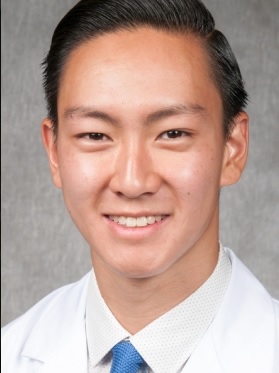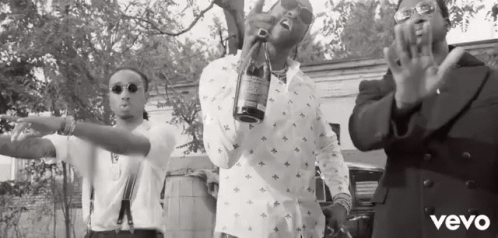Trying to make me a mil, so I’mma keep me a plate
I told ’em shawty can leave, so I’mma keep me a rake
So I’mma keep me a Wraith, my jewelry look like a lake
Beyond the braggadocios models-and-bottles lifestyle espoused by mainstream hip-hop, similarly common, albeit less glamorous, themes of both external and internal struggle exist.
I was looking at my resume feeling real fresh today
They rewrite history, I don’t believe in yesterday
And what’s a black Beatle anyway, a f*cking roach?
I guess that’s why they got me sitting in f*cking coach
My guy said I need a different approach
Cause people is looking at me like I’m sniffing coke
Hip-hop music was originally conceived as a means of self-expression against the overt systemic oppression levied against individuals of color in the early 1970s. The “them against us” attitude that continues to be embodied by contemporary works within the genre should be understood as the internalization of historical stresses rather than abrasive, violent, occasionally hyper-masculine hyperbole. However, as a result of my current state as a struggling second-year medical student sinking ever deeper into the swirling abyss of Step 1 prep, I’ve found more in common with the internal struggle touted by various rappers. For example, Kendrick Lamar raps on “u”:
You the reason why mama and them leavin’
No you ain’t sh*t, you say you love them, I know you don’t mean it
I know you’re irresponsible, selfish, in denial, can’t help it
Admittedly, the strife experienced by hip-hop artists comes from a different place than that of mine and likely many of our colleagues in the medical profession. Yet, the anxiety and fears of being unable to live up to expectations is something we can all understand.
Compared to individuals in other professions, rates of suicide amongst male and female physicians are respectively 70 percent and 130 percent higher. Despite efforts at de-stigmatizing depression, medical students and physicians remain reluctant to seek help. The dynamic of depression and suicidal ideation within the medical profession has an uncanny resemblance to the notion that hip-hop artists (traditionally disproportionately male) must maintain tough exteriors and show no signs of vulnerability. Just as some artists have turned to substances as a coping mechanism:
I’ve been drinkin’ all day, I’ve been floatin’ all day (call you friends and let’s get drunk)
Bring your *ss over here now
You know where, how I stay
I’ve been gone for some time now
I just want a lil’ taste
Surveyed medical students and physicians who endorsed suicidal ideation admit that their alcohol use disrupts their work or social performance. Alcohol is the most commonly used substance among U.S. medical students. The association between depression and at-risk drinking is significant not only because multiple studies corroborate such findings, but also (and more importantly) because alcohol consumption is the third leading cause of death in the United States.
The severity of the issue extends beyond medical school. The “maturing out” of problematic drinking that happens during postgraduate education doesn’t necessarily occur during residency or professional practice. Though hazardous drinking behavior declines after receiving the MD, almost a quarter of hazardous drinkers in their final year of medical school continue the habit 10 years later.
Fortunately, there exist regimens of intervention, treatment and monitoring that show excellent prognosis in physicians who struggle with substance abuse. Yet, even though the five-year physician relapse rate is a measly one third that of the general population, reliance on such treatments is still a reactive measure that doesn’t get at the root of the issue. Fear of stigmatization and of seeming inadequate/unable to handle responsibilities continues to fuel the insidious brand of depression suffered by medical students. In a way, hip-hop music can be as a cautionary tale. It warns of the consequences when the status quo, as embodied by “the man,” is allowed to continue along the path of least resistance at our cost.
And I heard ’em say,
Nothin’ ever promised tomorrow today
But we’ll a find a way
(And nothing lasts forever but be honest babe,
It hurts but it may be the only way)



